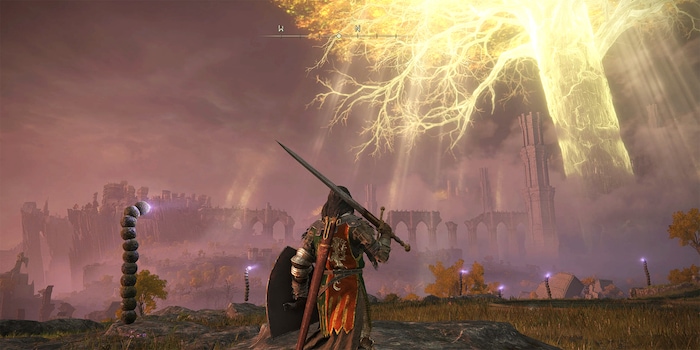
This is how Valve managed to bring Elden Ring to the Steam deck
Elden Ring is the latest game from the developers at From Software and is already a huge commercial success. But even a masterpiece, which could convince with top ratings in our review, is not spared from performance problems. But how did Valve manage to get such a hardware-hungry game running on the Steam deck?
This is an article from our content partner "PC Games". Here you can find the original article.
Elden Ring is the latest game from the developers at From Software and is already a huge commercial success. But even a masterpiece, which could convince with top ratings in our test, is not spared from performance problems. Even on high-end PCs, the game struggles. Although From Software has already released various patches that have brought improvement, there is still a lot of room for improvement.
In addition to Elden Ring, Valve's Steam Deck was also released last month. The handheld allows you to play selected Steam games from anywhere. However, the limited hardware of the deck makes it necessary to use various technical tricks to get modern games to work. So while other gamers are still struggling with the unoptimized PC version, Valve has managed to implement a fix. Unfortunately, this only works on the Steam deck.
What causes the performance problems in Elden Ring?
According to Digital Foundry, Windows 10's DirectX 12 API is responsible for Elden Ring's performance issues. Digital Foundry says a game that isn't fully "baked" before you launch it can send the player into a series of never-ending shader compilation jerks.
This is exactly what happens with the PC version of Elden Ring. The game pauses briefly each time to generate important components of the game, such as a new animation, a new enemy, or a new explosion, and that's how the jerks occur.
Shader Precaching - the solution to all problems?
Days before the handheld was shipped to pre-orderers, Valve's software team came up with an idea. Shader compilation works best when it is adapted to the specifications of the PC.
This precaching is in principle nothing new for now and is already used in many games and is the reason why they pause to analyze the respective hadware and compile the shaders accordingly. This is exactly where Valve comes in.
Why does Valve's solution currently only work on the Steam Deck?
For some games, Valve offers a so-called "shader pre-caching", in which case the shader compilation is optimized. This can compensate for a missing optimization, like in Elden Ring. Unfortunately, this fix only works for software that uses Vulkan or OpenGL. On Windows 10, Elden Ring does not qualify for this method since the Windows version uses DirectX 12.
Fix applicable for all Steam Deck titles.
Fortunately, Steam Deck is not based on Windows, but on Linux. The "Steam Proton compatibility wrapper" sends all of a game's API data directly to your deck's hardware via Vulkan.
This makes any game that runs on the Steam Deck's default operating system, Steam OS 3.0, theoretically compatible with this feature. First tests(via Twitter) could already prove improvements and also according to arstechnica stable framerates are possible in Elden Ring with up to 30 FPS at a mix of low to medium graphics settings.
PC games: cutting-edge news, videos, previews and critical reviews, thoroughly researched reports and handy tips on everything to do with PC games, console games and PC hardware.
From the latest iPhone to the return of 80s fashion. The editorial team will help you make sense of it all.
Show all